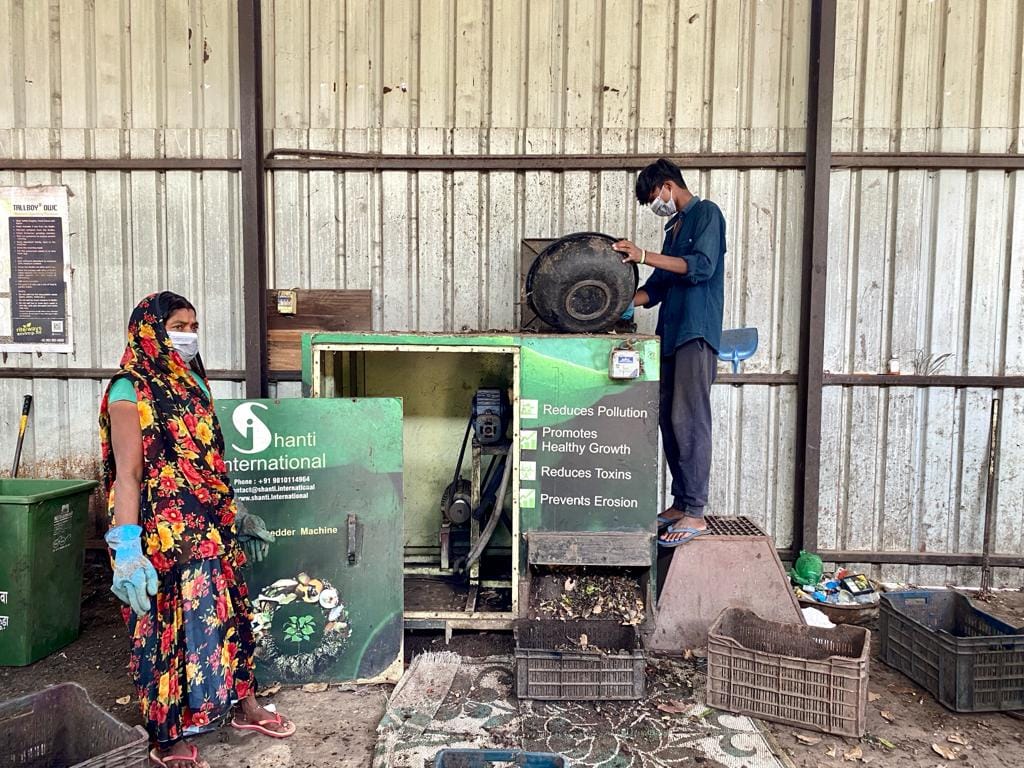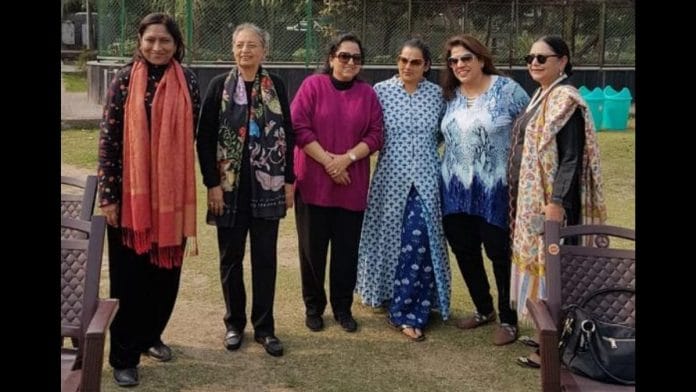New Delhi: Delhi’s hazardous Ghazipur landfill is not just a pile of rotten waste and stinking garbage, it’s also a death trap. Often, especially in summer, the trash catches fire on its own, likely from the release of methane gas. But sometimes, a part of the mound can just collapse and turn into a landslide, like it did in 2017 and killed two people.
It was one such incident that prompted Deepa Bagai, a retired IAS officer and currently an advisor with the United Nations, to seek measures on how to reduce the dumping of waste at Delhi’s four landfills and resort to efficient waste disposal.
And that’s where the women of Noida Sector 47 came in.
Bagai, who returned to India in 2018, lives in Sector 47, which recently got the ‘cleanest area’ award by the Noida Authority which was awarding Swachh prizes on Gandhi Jayanti. Sector 18 received the title of the cleanest market while Arun Vihar ward 2A in Sector 28 bagged the second position in the internal Swachh rankings of residential areas.
Also Read: From dumping grounds to golf courses — how Indore became India’s cleanest city
The women of Sector 47
Noida’s Sector 47 is not only the city’s cleanest locality but it has its own forest belt, developed by a group of enterprising women, of which Deepa Bagai is a member. Bagai told us that the idea of converting garbage into something of use was already in place because of the efforts of one of the residents, Madhu Saran.
The initiative started in 2019 when a group of women went door-to-door asking people to segregate the garbage and also to contribute to reducing the amount of waste in dumping grounds like Ghazipur. “People listened and were enthusiastic,” says Bagai.
Supriya Varma and Anju Kakkar, who were also part of the women’s initiative, showed ThePrint how their compost shed functioned.

Kakkar said that the sector sends 10 per cent or less of its waste to the dumping ground, and the compost, produced after processing the garbage, acts as fuel. This led them to develop their own green belt for the sector. Currently, the composts are also being sold to local farmers for use as fertiliser for crops.
The most important step in the venture, Varma says, is the segregation of waste. A simple task that helps the garbage to be turned into compost. In fact, they are now aiming to also process discarded milk packets, which remain a major cause of pollution. The sector of 1,100 households has turned garbage into a viable fertiliser.
Also Read: Noida is growing, Ghaziabad is fading. The story of Uttar Pradesh’s two boom towns
Noida Authority’s aim of cleaning up sectors
DGM Senior project engineer (public health), Noida Authority, S.C. Mishra told ThePrint that the awards were launched in 2018 as an incentive for the sectors to keep the localities clean. But the sectors have surpassed expectations with people showing how garbage disposal can be made cost-effective through community effort and application of innovative and indigenous ideas.
Bagai said the former CEO of Noida Authority, Alok Tandon, had also supported the initiative when it was first proposed to him.
Noida was adjudged the 25th cleanest city in India and bagged the top spot in Uttar Pradesh in the same category in the Centre’s Swachh Survekshan 2020.
Also Read: ‘Abandoned’ by the state, how RWAs in Noida, Ghaziabad became ‘atmanirbhar’ to fight Covid
Second to none
Lt. Col. Ram Ratan Singh Nara VSM, who is the director of Arun Vihar ward 2A in Sector 28, told us that the method being used to convert the garbage into vermicompost is not just inexpensive, but something that can be procured very easily. All that the process requires are dry leaves, cow dung and wet waste.

Nara said that the garbage in his sector is segregated into four parts — dry, wet, hazardous and sanitary — and the composting is done to use up all the wet waste produced by roughly 200 households. In 2018, says Nara, 110 tonnes of wet waste was produced in the ward, and 25 tonnes of cow dung were acquired from a nearby cowshed along with three tonnes of dry leaves from elsewhere. All of it yielded 111 tonnes of compost.
Mishra said that even during Covid, the Noida Authority went ahead with its ambition of becoming a cleaner city. They segregated wet and dry waste and improvised to also segregate Covid waste in order to process it better.
Garbage processing, besides being good for the environment because of the non-usage of electricity and no poisonous fumes from the burning of waste, can also be used to generate revenue.
Nara told ThePrint that based on the calculation of 2018, if sold at Rs 20 per kg, the total yield would generate about Rs 22 lakh annually.
From residents to the Noida Authority, with help from HCL, which has donated machines to the Sector 47 initiative and also Sector 28, the city seems to be making fresh headways towards becoming perhaps the cleanest city in India. What is remarkable is that these are locally run initiatives that have changed the pollution rates of the sectors as well as Noida. As for the residents, this is just the beginning of a journey towards sustainability and more improvement.






